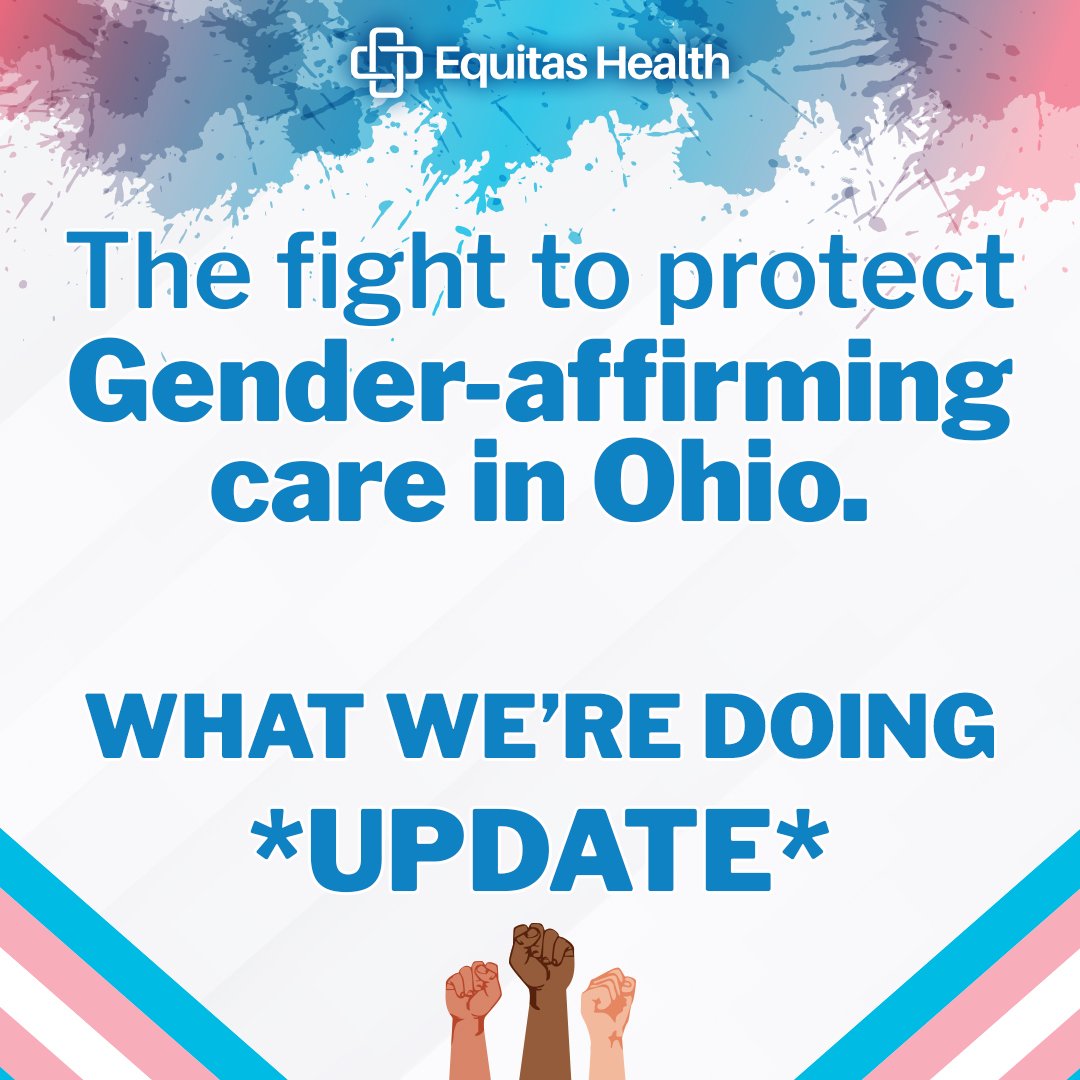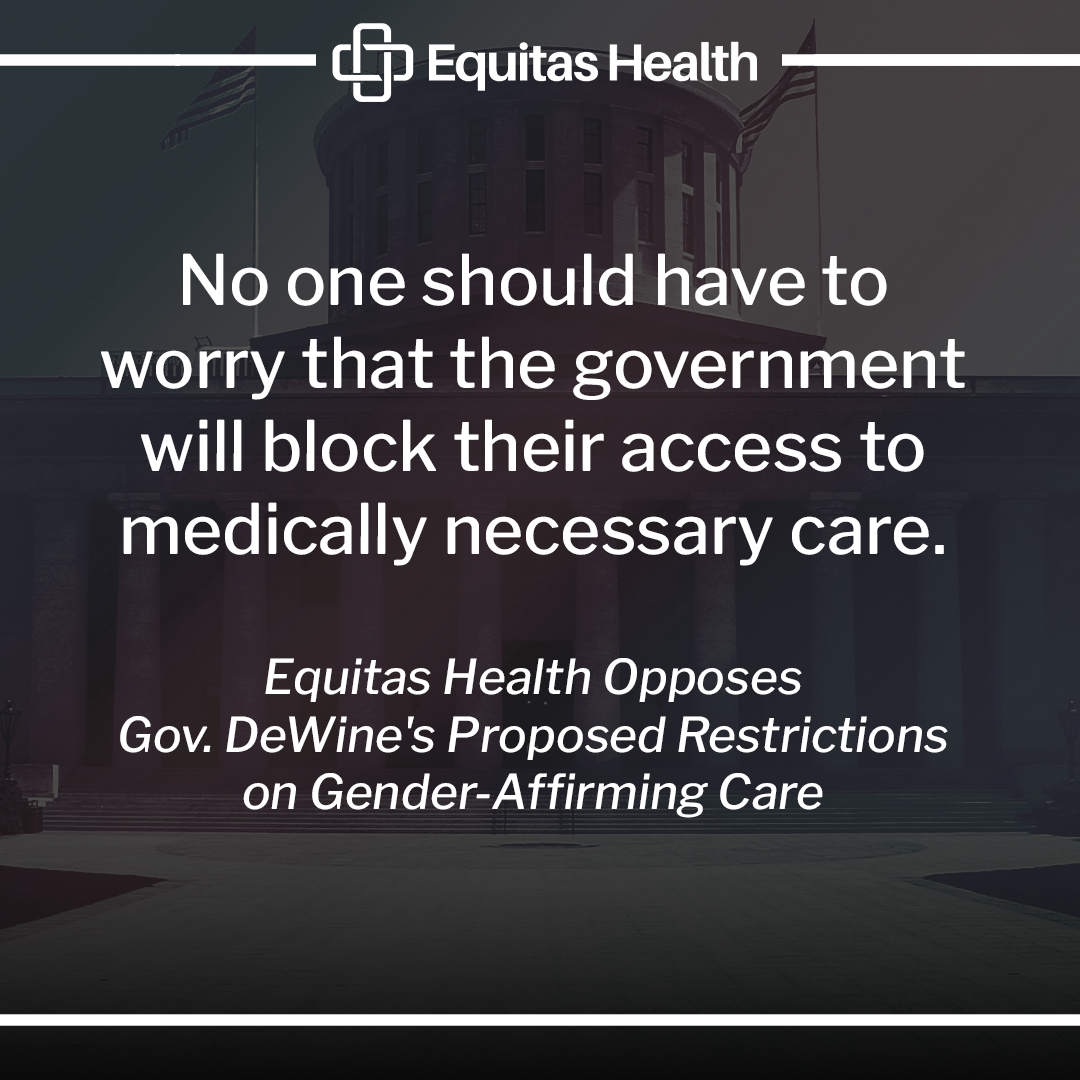Public Statement 1/9/24
COLUMBUS, Ohio – Equitas Health, one of the largest providers of gender-affirming care in Ohio, strongly opposes efforts by the state Legislature and Gov. Mike DeWine to restrict patient access to gender-affirming care and place undue administrative burdens on providers.
Simply put, healthcare decisions should be made by patients and their healthcare providers — not politicians.
On Dec. 29, 2023, DeWine announced that he would veto House Bill 68, a dangerous measure that would limit access to lifesaving gender-affirming care for Ohioans ages 18 and under. A week later, on Jan. 5, 2024, DeWine followed up his announcement by rolling out proposed administrative rule changes limiting access to gender-affirming care for youths and adults.
Dr. Rhea Debussy (She/Her), Director of External Affairs for Equitas Health, noted the following: “These proposed administrative rules are unethical, and they completely ignore evidence-based medical standards set forth by professional bodies, including WPATH and others. Further, these rules are a prime example of government overreach in pursuit of a radical anti-trans agenda.”
If Ohio’s proposed rules on gender-affirming care go into effect, they would be among the most extreme in the nation. Most primary care providers would no longer be able to prescribe hormone treatments to transgender people of any age. Providers would be subject to a slew of cumbersome requirements that would effectively put gender-affirming care out of reach.
Similar measures proposed in states across the country have been challenged successfully. As recently as December, a federal judge ruled that an Idaho law banning gender-affirming care for minors was unenforceable, citing 14th Amendment rights to equal protection and due process. More than 20 states have taken steps to enact such bans.
The rules being proposed in Ohio are unnecessary and motivated by partisan politics. Equitas Health and other gender-affirming care providers have long followed internationally established guidelines for care. Unlike DeWine’s proposed rule changes, medical experts developed these guidelines, placing patient care at the forefront.
Dr. Teagan Vaughn (She/Her), Director of Gender-Affirming Care for Equitas Health states: “As a clinician, I have patients’ best interests at the top of my priorities. These rules suggest licensed healthcare providers in Ohio—who are frequently trained by Ohio’s own excellent clinical programs—are incapable of even contemplating our own professional ethical codes, much less referring to colleagues when clinically appropriate. As single-site multidisciplinary care approved by a medical ethicist is not required for cisgender Ohioans, even in conditions where these requirements may have evidence to guide policy, I can only speculate at the transparent discriminatory nature of these rules.”
Further, the governor’s proposal allows only a brief window for residents to weigh in on the new rules. Patients and families who are at risk of losing access to care deserve a real chance to air their concerns. No one should have to worry that the government will block their access to medically necessary care. Equitas Health is reviewing the proposed rules. The agency is also educating patients on the near-term impact of the proposed rules and providing options for making their voices heard.

Blog 3/29/24
Equitas Health is pleased to announce that a collective bargaining agreement has been reached with Equitas Health Workers United Local #6609. Members of the bargaining unit voted this week, and the result was resounding support for ratification of the agreement.

Blog 2/26/24



Blog 6/2/23


Blog 6/24/22
Abortion is health care. Health care is a right. Today, that right came under attack at the Supreme Court.